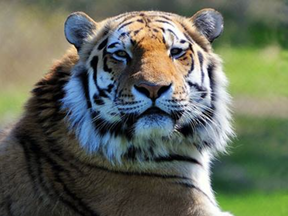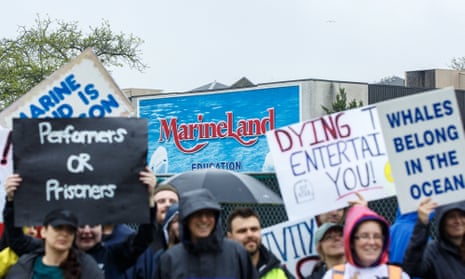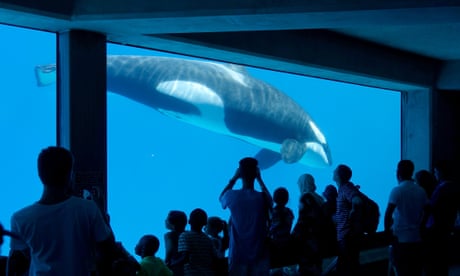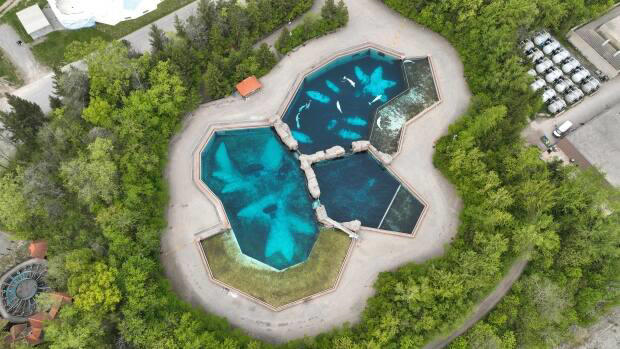Story by Sam Riches • National Post

A North Atlantic right whale mother and calf in waters near Wassaw Island, Ga.
For the past seven years, the U.S. National Marine Fisheries Service has been monitoring a spike in whale strandings along the entire East Coast.
The agency has declared the ongoing situation an “unusual mortality event,” or UME, for humpback whales. More than 200 humpback strandings have been reported since 2016 along the eastern seaboard, from Maine to Florida.
The National Oceanic and Atmospheric Administration’s (NOAA) Fisheries Department says it has conducted partial or full necropsy examinations on about half the whales, with 40 per cent of those examinations showing evidence of human interaction, such as entanglement or ship strikes.
But theories about offshore wind energy projects contributing to the deaths have risen alongside the strandings, despite the NOAA rejecting those claims.
More than 50 pilot whales perish after washing ashore on Scottish island
“To date, no whale mortality has been attributed to offshore wind activities,” said Lauren Gaches, director of public affairs for NOAA Fisheries, during a media teleconference earlier this year .
“There are no known connections between any of this offshore wind activity and any whale stranding regardless of species,” added Benjamin Laws, deputy chief for the permits and conservation division at NOAA Fisheries.
Despite these reassurances, the evidence for what is causing the strandings is limited. There are challenges associated with examining whales, which can be reported floating far offshore or already in an advanced state of decomposition.
Conducting necropsies often requires the use of heavy equipment, like front loaders and backhoes, and the location of the whales can make that difficult.
“Sometimes it’s very remote on a barrier island, for instance, sometimes it’s on a protected area where there’s nesting seabirds. And so our ability to actually access them and do a full examination can be really Limited,” said Sarah Wilkin, national stranding and emergency response coordinator with NOAA Fisheries.
Wilkin added that, generally, the state of decomposition is a major factor in preventing scientists from determining a definitive cause of death.
“That can be frustrating. We want to know the answers and our partners in the Stranding Network want to know the answers. We want to do these examinations to try and understand what impacts are happening on whales and other marine mammals in the ocean so that we can inform management, so that we can make changes to human activities that can reduce the injuries and deaths that could be being caused by our activities — but it just isn’t possible in many cases.”
While scientists do know that human interaction is a contributing factor in whale strandings, it hasn’t stopped special interest groups and politicians from joining efforts to lay the blame on wind energy products.
“The windmills are driving them crazy,” former U.S. President Donald Trump said at a rally in South Carolina earlier this week. “They’re driving the whales a little batty and now they’re washing up on your shores in numbers never seen before.”
Trump’s comments were in response to an NOAA proposal calling for seasonal speed restrictions for boaters along the East Coast in an effort to reduce vessels striking endangered North Atlantic right whales.
“The Biden administration is right now trying to bludgeon the boating and maritime industry,” said Trump.
Non-profits caught in the crosshairs
On the East Coast, one New Jersey-based non-profit organization has borne the brunt of the wind energy concerns.
The Marine Mammal Stranding Center (MMSC) oversees nearly 3,000 kilometres of coastline and tidal waterways from Maine to Florida. The organization says it has responded to over 6,000 animals since it opened in 1978 , ranging from sea turtles to bottlenose dolphins to large whales.
Over the past year, however, its staff members have been accused of being “whale murderers” and received threats from those who believe the organization is covering for offshore energy interests.
Volunteers with the organization have been threatened and forced to contact police. Earlier this year, the organization said one man burst into their office “demanding answers.”
“He just starts (yelling), ‘I want to know, I demand to know,’” Shelia Dean, 75, the group’s director told Time . “He was very frightening.”
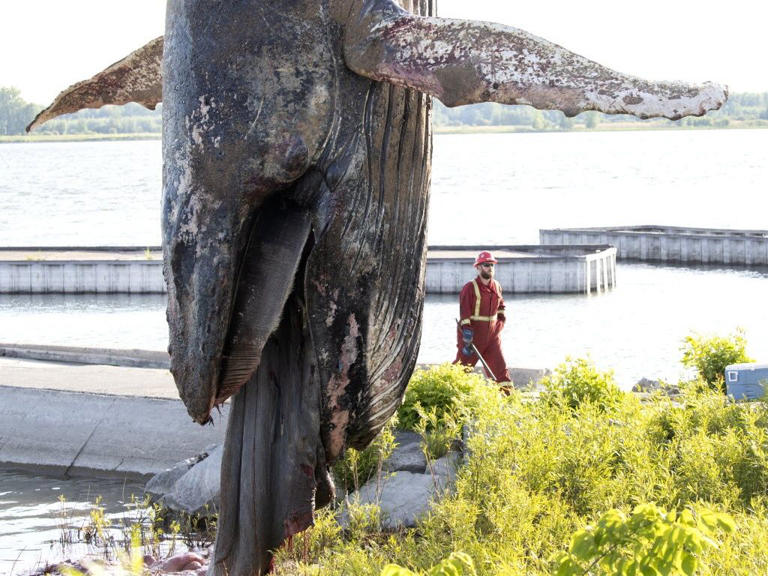
University of Montreal teams perform a necropsy on a humpback whale in Sorel, east of Montreal, on Wednesday, June 10, 2020.
One theory suggests that scientists are purposely not examining the whales’ inner ears in an effort to hide damage from sonar systems used in offshore wind mapping. MMSC explained to Time that examining ears is challenging, especially in decomposed whales.
Dean explained that to examine the inside of an ear, the bone casing has to be carefully opened and, in a state of decomposition, won’t reveal any details.
“After they’re dead three or four days … it’s mush inside,” she said. “You look at the flesh [of the whale] and it smells and it’s starting to get jellylike. You’re not going to get anything out of this at all.”
Another theory suggests that organizations like MMSC aren’t examining the animals as thoroughly as possible. But like the NOAA, MMSC cites the difficulties in performing full necropsies due to time constraints and logistical challenges.
Funding can also be an issue. The NOAA says that the costs are usually covered by the individual Stranding Network organization that conducts the response. But in some cases, such as UME investigations, NOAA Fisheries may provide additional funds .
This is in addition to assistance from local jurisdictions that assist with moving and disposing of large animals.
Dean told Time that funding MMSC is a challenge, though the organization does receive some assistance from the federal government for its necropsy work. Offshore wind companies have also offered support in the past, but Dean said she turned them away for fear of appearing biased toward their development.
The lack of clear answers doesn’t help dispel the wind energy narratives but rescue organizations say the reality of investigating whale deaths is complex and often inconclusive.
During the teleconference call in January, Laws attempted to clear the air.
“I just want to be unambiguous,” he said. “There is no information that would support any suggestion that any of the equipment that’s being used in support of wind development for these site characterization surveys could directly lead to the death of a whale.”
U.K. scientists find a potential answer in historic stranding incident
In July, one of the worst strandings in the recent history of the U.K. took place in the Western Isles, a group of islands located off the west coast of Scotland.
A pod of 55 long-finned pilot whales, including several pregnant females and maternally dependent calves, washed up in North Tolsta on the Isle of Lewis. Only one of the animals survived.
The Scottish Marine Animal Stranding Scheme (SMASS) was tasked with carrying out the post-mortem examinations. Led by veterinary pathologist Dr. Andrew Brownlow , the investigation was described as a “monumental task” and a “race against time.”
That examination revealed that one of the whales appeared to have birthing issues.

A pod of 55 pilot whales washed ashore on a beach in Scotland in July in one of the worst mass whale strandings in the area.
“This would have caused obvious stress to the individual, and due to the close family ties of this species, could have potential further significance for all of the members of the pod,” SMASS wrote in an Instagram post in July.
In an interview with Reuters , the British Divers Marine Life Rescue (BDMLR) also lent support to this theory.
“Pilot whales are notorious for their strong social bonds, so often when one whale gets

